West Suffolk Hospital hunt for whistleblower 'incendiary' says report
- Published
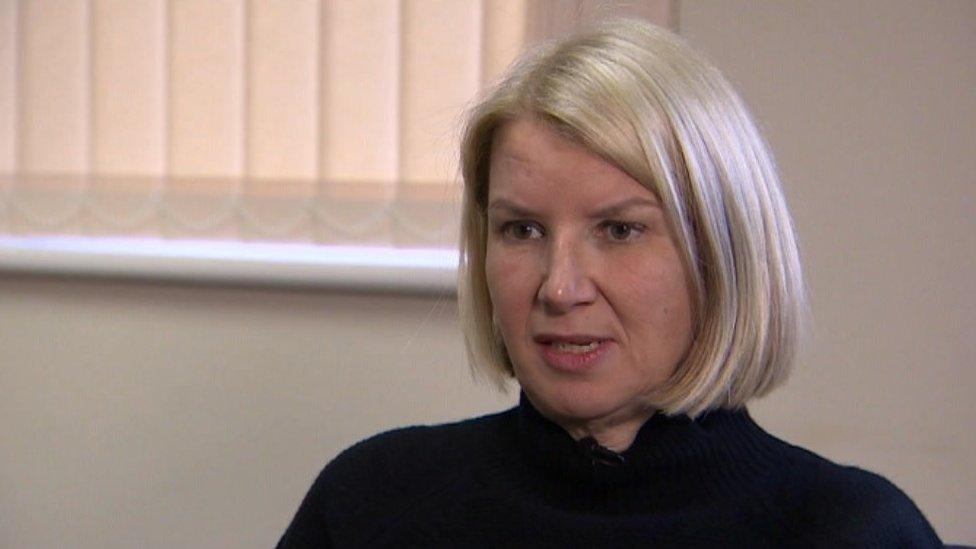
Dr Patricia Mills feared for her career after she spoke out about a colleague who was injecting himself with painkillers
An NHS doctor who was pursued for fingerprint and handwriting samples as hospital bosses hunted a whistleblower said the experience made her ill.
An independent report has called West Suffolk Hospital managers' hunt for an anonymous letter writer "incendiary".
Dr Patricia Mills, who was asked for samples, said she "felt that I was going to lose my career".
The hospital has apologised to her and the other staff involved.
The 226-page report, external from NHS Improvement has catalogued a string of failures in how the hospital's management handled concerns over an anaesthetist who had been seen injecting himself with painkilling drugs while caring for patients.
It also detailed how management had pursued Dr Mills when she spoke out, which was described by the Doctors' Association as a "witch-hunt".
'Big cover-up'
The West Suffolk NHS Foundation Trust (WSFT) began an internal investigation after a letter was sent to Jon Warby, a former police officer, whose wife Susan died at the hospital in Bury St Edmunds in 2018.
The letter, quoted in the critical report, stated: "We think you should know that the consultant anaesthetist who made the mistake with the fluid into the arterial drip in theatre should never have been at work.
"He had injected himself with drugs... while in charge of a patient and it was all hushed up and he was at work like nothing at all had happened - but we all knew the truth.
"You need to ask questions about this doctor and what investigations had been had about him before.
"We think there is a big cover-up. Operating Theatre Staff."
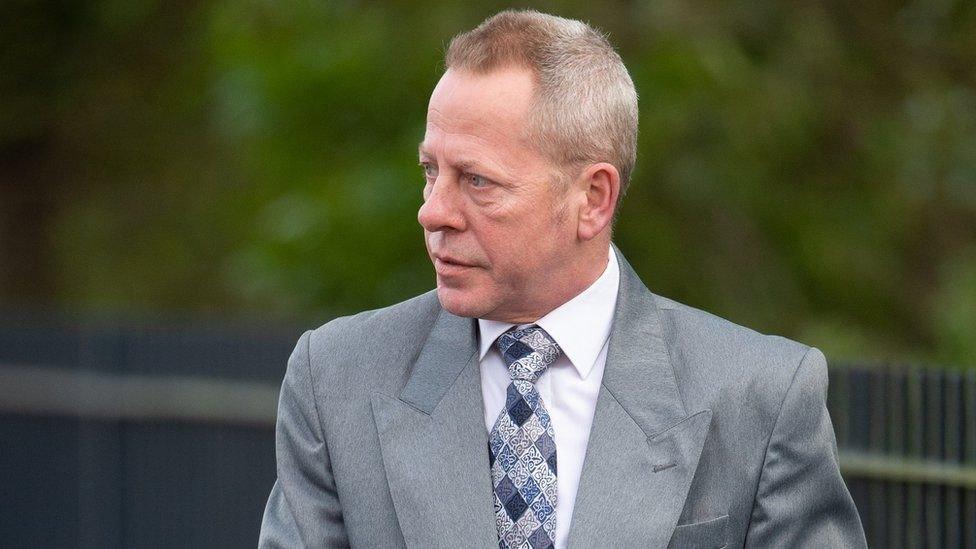
Jon Warby said he had been "knocked sideways" when he received the whistleblower's letter
Efforts to identify the letter writer led to seven medical staff being singled out, four of whom had raised concerns about the anaesthetist through other channels, including Dr Mills.
She said: "I would say that it's been an incredibly difficult and distressing two and a half years, not just for me, but for my family.
"Several of my colleagues were also pursued incorrectly for their biometric data.
"I thought I was going to lose my 30-year career doing a job that I absolutely loved and had trained really hard to do."
She said it had made her ill and she saw other colleagues had been affected in the same way.
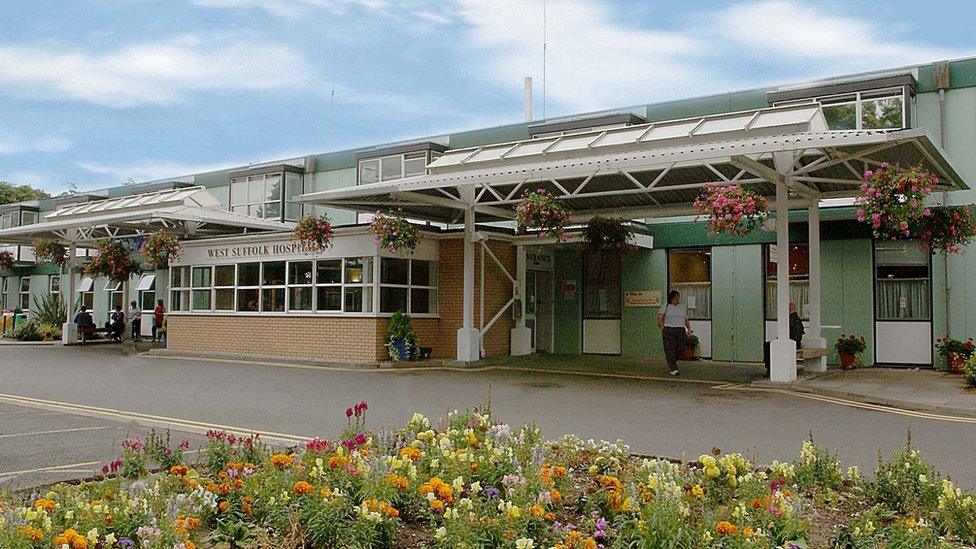
The Doctors' Association previously spoke of a "toxic culture" at the hospital in Bury St Edmunds
An inquest into Mrs Warby's death concluded that the consultant concerned had not directly caused her death.
The coroner said the main factor was the administration of a dextrose drip instead of a saline one and he raised concerns about the labelling of such fluids.
The new report, commissioned by the Department of Health and Social Care, said the consultant, referred to as Dr A, had previously admitted self-administering intravenous magnesium and parecoxib, a painkiller, while responsible for an anaesthetised patient a year previously.
But hospital management had allowed him to continue working after this had come to light.
'Intimidating process'
Report author Christine Outram, chairwoman of the Christie NHS Trust in Manchester, said "the handling of the incident was inadequate because it showed insufficient regard for patient safety, the practitioner's wellbeing, the understandable anxieties of the other staff on duty".
The hospital management's commissioning of handwriting and fingerprinting experts to identify the letter writer used a flawed process to narrow down a list of potential suspects, the report said.
Invoices obtained by the BBC under the Freedom of Information Act show two companies were paid almost £2,500 for their services.
The BBC can disclose one of them was Bournemouth-based handwriting expert Paul Craddock, who declined to comment.
The report described the decision to use these services as "incendiary" and Dr Mills found herself at the centre of a disciplinary process after she was identified as a possible author, which she denied.
It said this action was "an intimidating process that distressed and damaged individual staff members" and lacked "fairness, balance and compassion".
Dr Mills had previously emailed the chairman of the hospital trust with her concerns about Dr A in confidence, but this was inappropriately passed to the then chief executive Dr Stephen Dunn.
A meeting was arranged with him where Dr Mills own conduct was questioned as well.
This and other responses to efforts by Dr Mills and her colleagues to highlight their concerns were, according to Ms Outram, "wholly contrary" to the NHS's Freedom To Speak Up policy designed to protect whistleblowing staff who were worried about patient safety and the conduct of colleagues.
Ms Outram said the concerns about the anaesthetist were "effectively ignored".
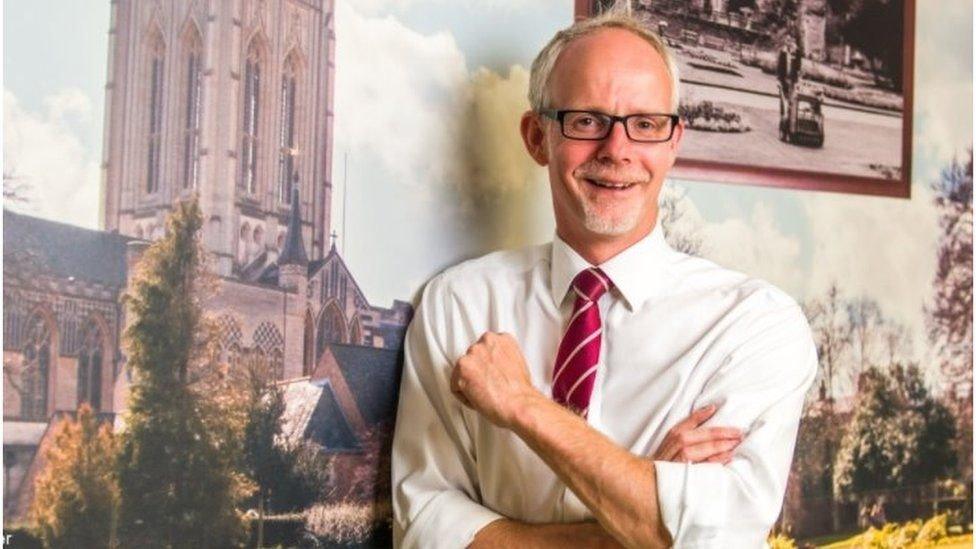
Former West Suffolk chief executive Stephen Dunn stepped down from the role in the summer
A statement from Mr Warby's solicitors said: "The report reveals there's a culture of staff being afraid to speak up and raise concerns, and this is unacceptable.
"It not only has a damaging effect on staff, but could potentially compromise patient care.
"Transparency is key to helping maintain confidence in the NHS and staff must feel that they can speak freely on any issues within the hospital without fearing the consequences."
'Failings and shortcomings'
Back in April, two directors at the centre of the hunt for the letter writer announced they were stepping down.
Medical director Nick Jenkins and chief operating officer Helen Beck have both been heavily criticised in the Outram report.
Dr Dunne also announced his intention to step down after seven years as chief executive.
The BBC has been unable to reach Dr Dunn, Ms Beck and Dr Jenkins for comment.
Craig Black, interim chief executive for WSFT, said: "We take full responsibility for failings and shortcomings around the handling of events leading up to and surrounding the whistleblowing, and are truly sorry to the staff and families affected.
"All our staff should feel confident to speak up without fear of retribution and we have taken a number of actions over the last two years to improve our HR, culture and leadership practices, including appointing two new Freedom To Speak Up Guardians.
"We will use this report to make further changes to continue our work to create an open, fair and inclusive organisation that puts our staff and patient safety front and centre."

Find BBC News: East of England on Facebook, external, Instagram, external and Twitter, external. If you have a story suggestion email eastofenglandnews@bbc.co.uk, external
Related topics
- Published28 July 2021
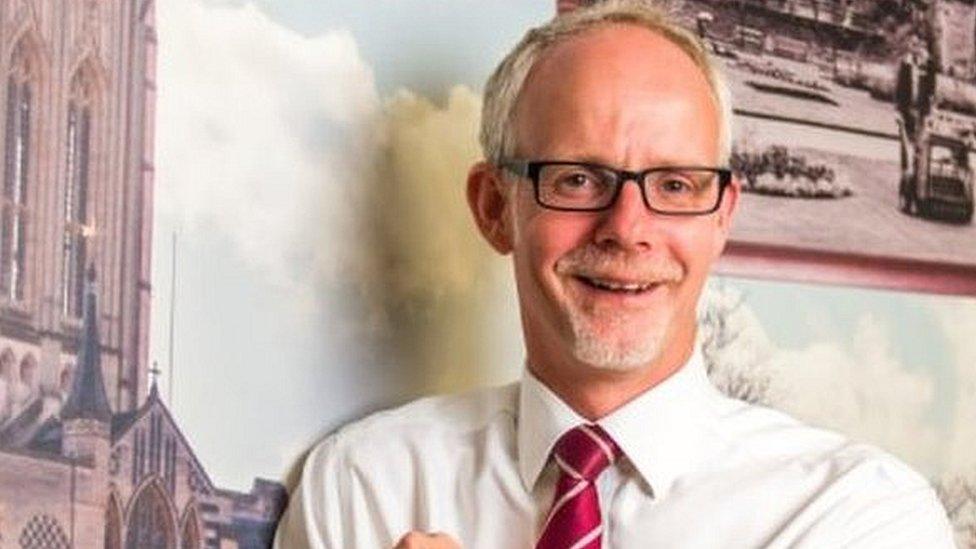
- Published13 April 2021
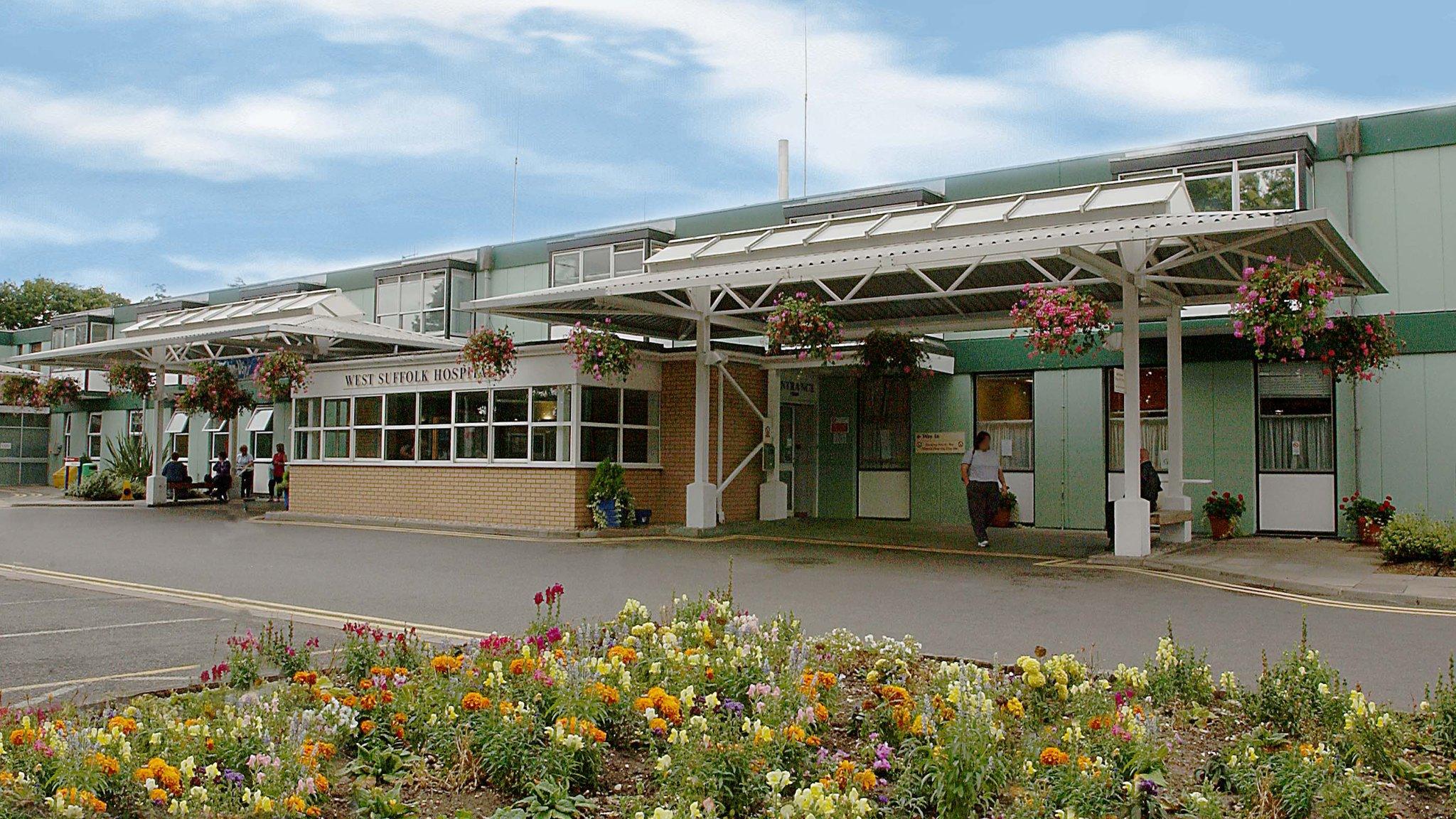
- Published7 September 2020
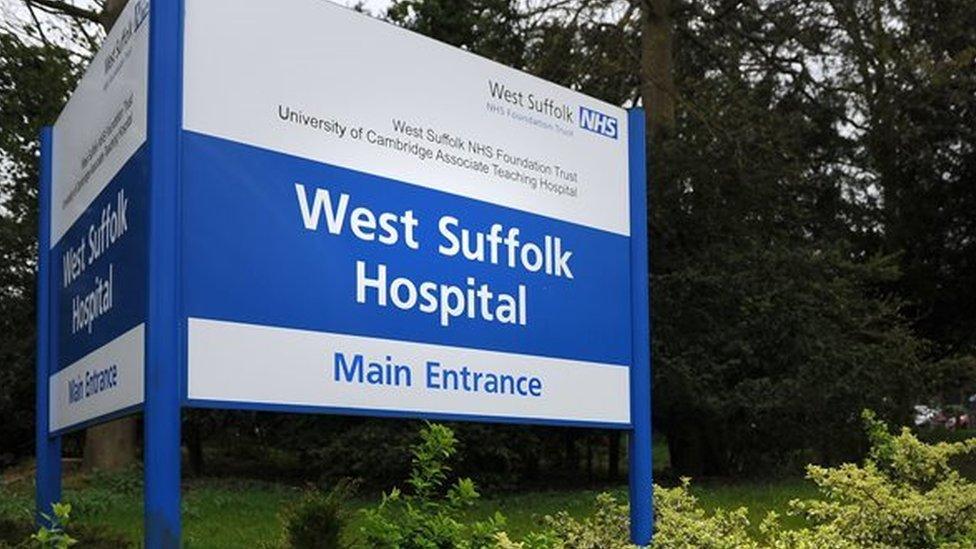
- Published30 January 2020

- Published17 January 2020
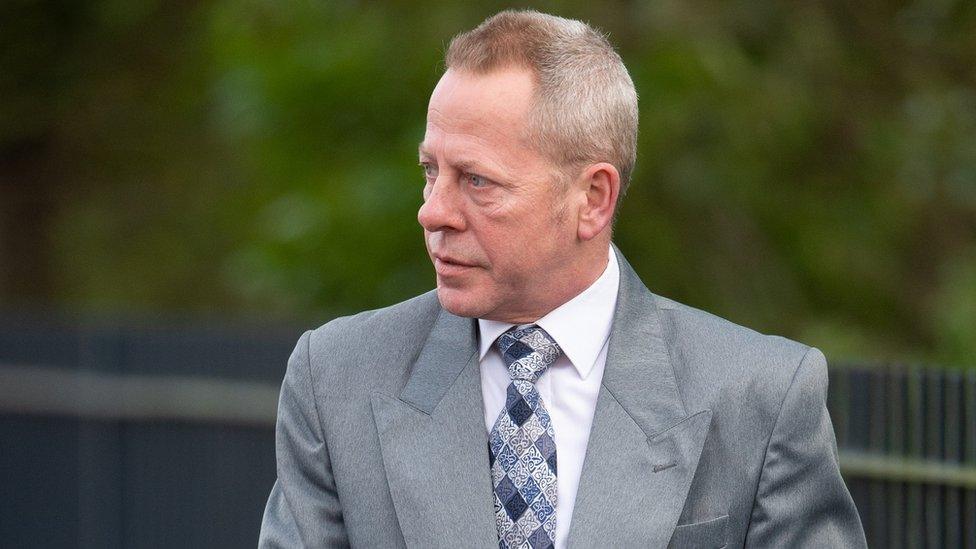
- Published16 January 2020
